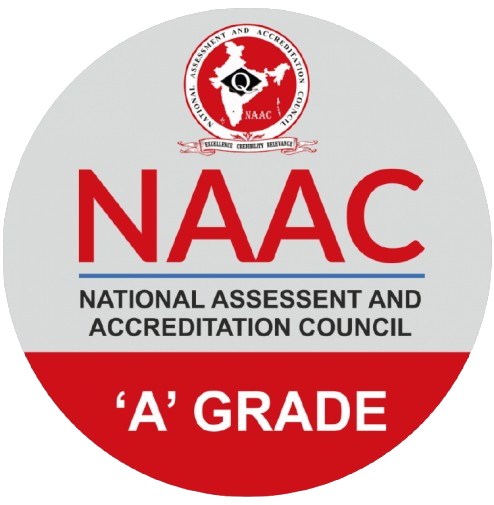AI & DS Department
PROGRAM EDUCATIONAL OBECTIVES (PEOs):
-
PEO-1: Professional & Technical Excellence
Graduates will apply solid foundations in mathematics, statistics, AI and data-engineering to design, develop and deploy reliable, scalable, data-driven solutions that meet global industry standards. -
PEO-2: Innovation, Research & Lifelong Learning
Graduates will pursue advanced studies, research publications, patents, or professional certifications, continuously upgrading their skills to contribute new knowledge in emerging AI/DS domains. -
PEO-3: Industry Collaboration & Entrepreneurial Mind-set
Graduates will collaborate with industry, start-ups and interdisciplinary teams or launch technology ventures, thereby bridging academia–industry gaps and driving economic growth. -
PEO-4: Ethical Leadership & Societal Impact
Graduates will exhibit leadership, integrity and social responsibility, leveraging AI and Data Science to address real-world problems—particularly those affecting rural and urban communities—while upholding human values and ethics.
Program Outcomes (POs)
- Engineering knowledge: Apply the knowledge of mathematics, science, engineering fundamentals, and an engineering specialization to the solution of complex engineering problems.
- Problem analysis: Identify, formulate, review research literature, and analyze complex engineering problems reaching substantiated conclusions using first principles of mathematics, natural sciences, and engineering sciences.
- Design/development of solutions: Design solutions for complex engineering problems and design system components or processes that meet the specified needs with appropriate consideration for the public health and safety, and the cultural, societal, and environmental considerations.
- Conduct investigations of complex problems: Use research-based knowledge and research methods including design of experiments, analysis and interpretation of data, and synthesis of the information to provide valid conclusions.
- Modern tool usage: Create, select, and apply appropriate techniques, resources, and modern engineering and IT tools including prediction and modeling to complex engineering activities with an understanding of the limitations.
- The engineer and society: Apply reasoning informed by the contextual knowledge to assess societal, health, safety, legal and cultural issues and the consequent responsibilities relevant to the professional engineering practice.
- Environment and sustainability: Understand the impact of the professional engineering solutions in societal and environmental contexts, and demonstrate the knowledge of, and need for sustainable development.
- Ethics: Apply ethical principles and commit to professional ethics and responsibilities and norms of the engineering practice.
- Individual and team work: Function effectively as an individual, and as a member or leader in diverse teams, and in multidisciplinary settings.
- Communication: Communicate effectively on complex engineering activities with the engineering community and with society at large, such as, being able to comprehend and write effective reports and design documentation, make effective presentations, and give and receive clear instructions.
- Project management and finance: Demonstrate knowledge and understanding of the engineering and management principles and apply these to one’s own work, as a member and leader in a team, to manage projects and in multidisciplinary environments.
- Life-long learning: Recognize the need for, and have the preparation and ability to engage in independent and life-long learning in the broadest context of technological change.
PROGRAM SPECIFIC OUTCOMES (PSOs):
- PSO1: The ability to understand, analyze and demonstrate the knowledge of Artificial Intelligence, Machine Learning and data engineering in terms of real-world problems to meet the challenges of the future.
- PSO2: Use modern tools and techniques in the area of Data Science.


